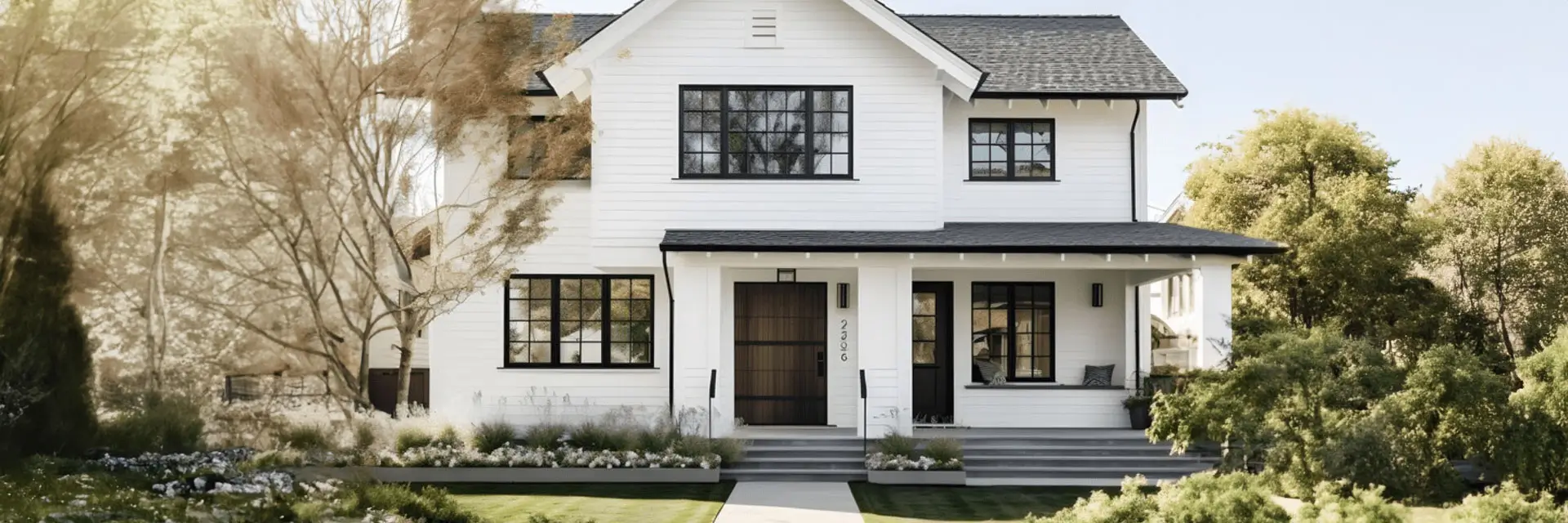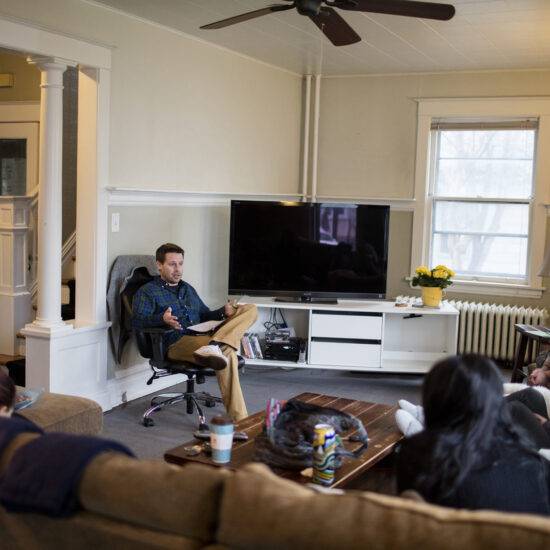Sober living homes are essential for people recovering from substance abuse. They offer a supportive and structured environment that helps bridge the gap between intensive treatment and independent living. Staying sober is challenging and requires more than just willpower; it needs a supportive community, structured living conditions, and following specific sober living home rules.
This blog will explain sober living home requirements, the rules residents must follow, and what life is like inside these homes. We will cover the definition and purpose of sober living homes, the different types, the essential requirements, the rules that ensure a safe and supportive environment, and a detailed look at daily life in our sober living home.
What is a Sober Living Home?
A sober living home is a residential facility designed to help individuals transition from intensive treatment for substance abuse to independent living. These homes provide a structured environment that supports recovery, offering a space free from the temptations and triggers of the outside world. The primary purpose of sober living homes is to foster a community where residents can build and maintain sober lifestyles, develop coping skills, and gradually reintegrate into society.
Types of Sober Living Homes
There are four levels of sober living homes, each providing varying degrees of structure and support:
Level 1: Fully Peer-Run
These homes are managed entirely by the residents, without paid staff. Residents support each other in maintaining sobriety.
Level 2: Monitored with at Least One Paid Staff
These homes have at least one paid staff member who oversees the residents and ensures adherence to the house rules and sobriety requirements.
Level 3: Supervised with Certified Staff
These homes have certified staff who provide more structured supervision and support, often including case management and recovery services.
Level 4: Clinical and Administrative Supervision with Credentialed Staff
These residences offer comprehensive supervision and aid, with clinical services delivered by certified professionals. They often integrate treatment services with daily living support.
Requirements for Staying in a Sober Living Home
Residents must meet specific sober living home requirements to keep the home supportive and safe. These rules ensure everyone in the home is dedicated to their recovery and maintaining a positive community.
Completion of Detox and Rehabilitation
Before moving into a sober living home, residents must complete a detox program and, in most cases, a rehabilitation program. This ensures that they are physically stable and have begun their journey to recovery.
Financial Responsibilities
Residents are required to pay for their stay in the sober living home. This includes rent, utilities, and sometimes additional fees for house activities or communal supplies. Financial responsibility is a key component of rebuilding independence and stability.
Employment, School Enrollment, or Volunteering
To stay in a sober living home, residents must be engaged in productive activities such as employment, school, or volunteering. This helps them build routines, gain financial independence, and develop a sense of purpose.
Commitment to Ongoing Therapy or Support Groups
Residents must continue participating in therapy or support groups, such as 12-step programs. Ongoing support is essential for maintaining sobriety and addressing underlying issues associated with substance abuse.
Rules of a Sober Living Home
To create a safe, structured, and supportive environment, sober living homes have specific rules that all residents must follow. These rules are essential to maintaining the integrity of the sober living community.
No Drugs or Alcohol
The most fundamental rule in a sober living home is the prohibition of drugs and alcohol. This rule is strictly enforced to ensure that the environment remains free from triggers and temptations that could lead to relapse.
Curfew Policies
Curfews are set to provide structure and ensure the safety of all residents. For example, a typical curfew might be 9 PM on weekdays and 10 PM on weekends for the first 30 days, gradually extending as residents demonstrate responsibility and progress in their recovery.
Household Participation and Chores
Residents are required to participate in household chores and activities. This helps maintain the cleanliness and order of the home and fosters a sense of community and responsibility.
Random Drug and Alcohol Screenings
To ensure compliance with the no drugs and alcohol rule, residents must submit to random drug and alcohol screenings. These screenings help maintain accountability and prevent relapse.
Accountability for Whereabouts
Residents must be accountable for their whereabouts when they are not on the property. This ensures that they are engaging in productive activities and not putting their sobriety at risk.
Restrictions on Visitors and Overnight Stays
To maintain a safe and supportive environment, sober living homes often have strict rules about visitors and overnight stays. Visitors are typically only allowed during certain hours, and overnight guests are generally prohibited.
Respect and Boundaries Among Residents
In a communal living setting, respect and boundaries are essential. Residents must treat each other and staff with respect and refrain from abusive behavior, threats, or confrontations.
What Happens at Our Sober Living Home?
Our sober living home offers a structured and supportive environment where residents can focus on their recovery while building a stable and sober lifestyle.
Daily Routines and Activities
Residents at our sober living home follow a structured daily routine that includes activities such as morning check-ins, household chores, group meetings, and personal time for work, school, or volunteering. These routines assist residents in cultivating healthy habits and ensuring stability.
Support and Accountability Mechanisms
We provide various support mechanisms, including regular house meetings, individual check-ins with staff, and access to recovery coaches. These systems help residents remain accountable while offering chances for support and guidance.
Community and Recovery Support Systems
Our sober living home cultivates a deep sense of community. Residents support each other through shared experiences and common goals. We also connect residents with local recovery support systems, such as 12-step meetings and therapy sessions.
Distinct Policies and Practices of the Home
We implement specific policies and practices to ensure a safe and supportive environment. These include curfews, random drug screenings, rules about visitors, and requirements for participation in household activities.
FAQs
Common Questions About Living in a Sober Home
Que: What is a sober living home?
Ans: A sober living home is a residential facility that aids individuals recovering from substance abuse by offering a structured, substance-free environment.
Que: What are the requirements for staying in a sober living home?
Ans: Requirements include completion of detox and rehabilitation, financial responsibility, engagement in productive activities, and commitment to ongoing therapy or support groups.
Que: What are the rules and regulations of a sober living home?
Ans: Common rules include no drugs or alcohol, adherence to curfews, participation in household chores, random drug screenings, and respect for fellow residents.
Que: What are some of the important Rules and Requirements?
Ans: Here are some of the important Rules and Requirements of sober living home:
Curfews: These are set to provide structure and ensure safety. Extensions can be granted with permission.
Drug and Alcohol Screenings: These are conducted randomly to maintain a substance-free environment.
Visitors: Restricted to certain hours, and overnight stays are generally prohibited to maintain a safe space.
Que: Are there some quick tips for Choosing the Right Sober Living Home?
Ans: 1. Research the home’s rules and requirements to ensure they align with your recovery needs.
2. Visit the home to get a feel for the environment and meet the staff.
3. Ask about support mechanisms, such as access to recovery coaches and house meetings.
4. Ensure the home is certified or accredited by a reputable organization.
Conclusion
Sober living home requirements are essential for creating a safe, structured, and supportive environment that fosters recovery and helps individuals build sober lifestyles. Adherence to these requirements ensures that all residents are committed to their sobriety and contribute to the overall success of the sober living community.
Choosing to stay in a sober living home is a positive step towards maintaining sobriety and building a stable, independent life. The structured environment, supportive community, and adherence to sober living home requirements provide the foundation needed for long-term recovery.
If you or someone you know is considering a sober living home, we encourage you to reach out and learn more about our program. Reach out to BHouses to begin your journey toward a more secure, sober future.










